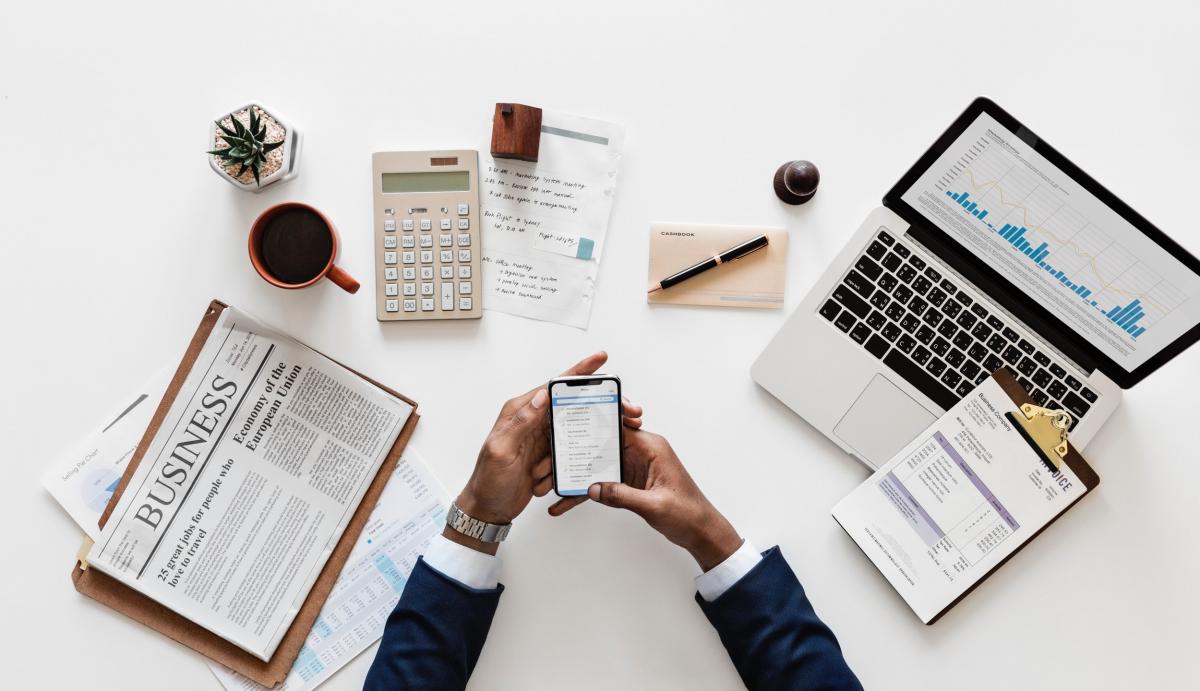Top 5 Tax Tips for Freelancers
As a freelancer, do you always feel dread whenever tax season comes around? In theory, you should always keep your accounts in order. But that’s not an easy thing to do, especially if you have a busy work schedule.
That's why we have put together some tips that will help you file those tax returns and make your tax payments on time.

Here are five top tax tips for freelancers from David Hughes, Managing Director of Rodliffe Accounting.
Keep all your financial documents digitally
The only way to reduce your taxable income is through your business purchases or expenses, and you’d be surprised by how many expenses you can rack up in a year. You need to record all of these costs as the taxman will require proof showing these are legitimate expenses, and you also need to keep them for at least five years after the 31 January tax deadline. This is why having a digital record instead of a huge shoebox full of receipts, bank statements and invoices would make much more sense. Don’t forget to file them in chronological order for easy access too, which you can always use accounting software to help you with.
Never mix personal (assets) with business
If you run your business as a sole trader, you are not legally bound to creating a business bank account. However, it is recommended that you keep your personal finances separate from your business transactions. There are a number of benefits of having your personal and business accounts separate and they include:
- You’ll know how much money is tied up to your business
- It’s easier to budget and account for costs
- You don’t have to go through the trouble of deciding which expenses are business-related
Record all sources of income
Keeping track of your income is now easier thanks to online banking, and by linking the bank feeds to the accounting software you can remove some of the dreaded bookkeeping. Reviewing the business bank account on your choice of accounting software will allow you to check your balance at any time, in real time. Also, if you store the files on your computer or the cloud, there’s no need to worry about losing them or worrying at the end of the year that you need to find everything for your accountant. Reporting and verifying your yearly income is also less tedious.
Stick to a routine
As a freelancer, you’re used to a flexible working schedule. That kind of work routine, however, is probably not applicable when it comes to keeping your account in order. Accomplishing the necessary paperwork in time makes it easier to file and pay the tax before the deadline.
To avoid this complication, make it a routine to file your documents regularly. You can set aside at least half an hour every week to keep your documents and records in order. Remember all you will need to do is raise invoices, add expenses and review reports on your dashboard.
Get professional help
Do you have the time to both run your business and manage its account? If the answer is no, perhaps it’s time to pass that responsibility to a freelancer accountant. An accountant can help you manage your finances, giving you the time to build and grow your business. By hiring an accountant, you have more time to run your business and increase your income.
Conclusion
You can record and update your accounts. If the task, however, is too much for you, hire an accountant or bookkeeper. The important thing is to pay your taxes on time and avoid the fines and penalties.
More on tax advice and freelance accounting software.





